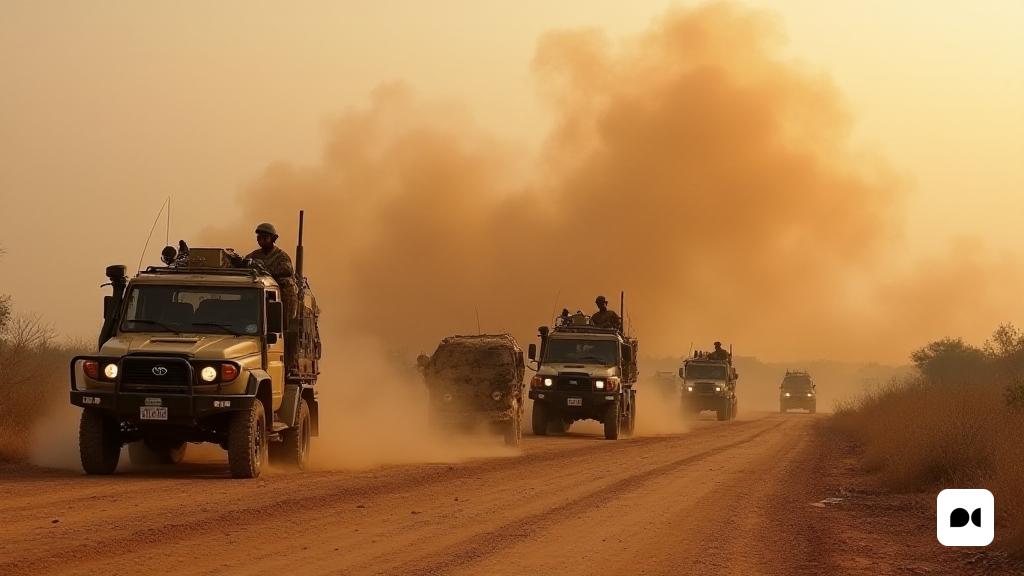Allegations of Chemical Warfare: A Grave Accusation
The United States government has unveiled plans to implement fresh sanctions against Sudan, following serious allegations that the nation employed chemical weapons during its ongoing civil strife. The State Department’s spokesperson, Tammy Bruce, stated that these sanctions are a direct response to Sudan’s use of chemical agents against the Rapid Support Forces (RSF) in the conflict that has engulfed the country.
Impact of Sanctions: A New Phase in US-Sudan Relations
Starting June 6, the sanctions will include restrictions on US exports to Sudan, alongside imposed limits on the country’s ability to secure financial loans. This decisive action reflects a broader US strategy to hold accountable those allegedly responsible for war crimes in the region.
Sudan’s Response: Denials and Accusations
In stark contrast, Sudan’s government dismissed these allegations as unfounded, labeling them as ‘baseless claims without evidence.’ This reaction underscores the persistent tension between the two nations, with Sudan’s Culture and Information Minister, Khalid Al-Ayesir, accusing the US of using ‘political blackmail’ to influence public perception and undermine the Sudanese leadership.
The Human Cost of Conflict: A Grim Toll
The civil war, which ignited two years ago, has resulted in catastrophic loss of life, with estimates surpassing 150,000 fatalities. As the Sudanese military has regained control of Khartoum, violent clashes persist in other regions, exacerbating the humanitarian crisis that has displaced millions and left a staggering 25 million individuals in dire need of food assistance.
Chemical Weapons: An Unseen Threat
While the specifics of the alleged chemical weapons remain undisclosed, reports have surfaced regarding the use of chlorine gas in isolated incidents. Such weapons inflict severe harm and can be lethal, raising urgent concerns about their deployment in the ongoing violence.
Historical Context: The Legacy of US-Sudan Relations
The historical backdrop of US-Sudan relations is fraught with accusations and military interventions. The infamous bombing of the Al-Shifa pharmaceutical factory in 1998, based on claims of chemical weapons production, still looms large in the narrative, with Sudan asserting that these allegations were false and unfounded.
Global Implications: The Chemical Weapons Convention
Nearly all nations, including Sudan, have ratified the Chemical Weapons Convention (CWC), committing to the elimination of such arsenals. Yet, the US’s emphasis on enforcing compliance signals a complex interplay of international law and geopolitical strategy, as they seek to ensure accountability for chemical weapons proliferation.
Future Prospects: The Ongoing Crisis in Sudan
As tensions escalate, the US’s latest sanctions add another layer of complexity to an already volatile situation. Observers note that the effectiveness of these sanctions may be limited, given prior measures already in place. With diplomatic ties strained and regional powers like the UAE accused of involvement, the path forward for Sudan remains uncertain.
A Call for Accountability
The unfolding situation in Sudan raises critical questions about international accountability and the role of external powers in conflict resolution. As the US reiterates its commitment to hold violators accountable, the global community watches closely, aware that the stakes are high not only for Sudan but for international norms regarding warfare and humanitarian protections.

